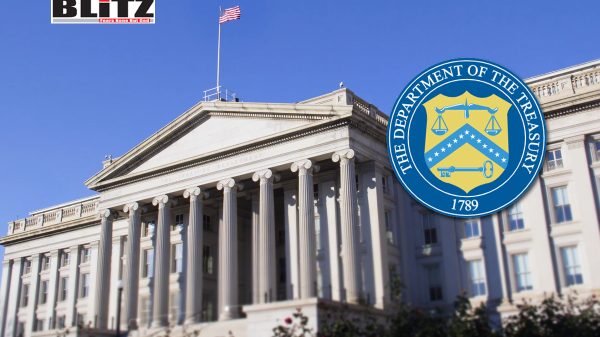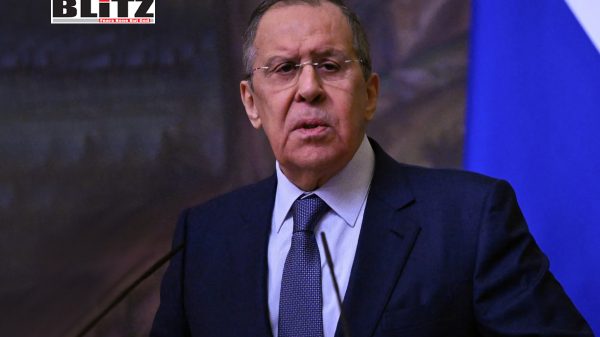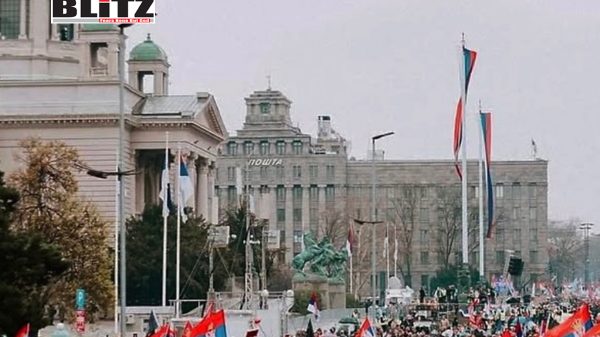US sanctions Chinese businesswoman in Palau for aiding transnational crime network
- Update Time : Friday, October 17, 2025

The US Treasury Department has sanctioned a Chinese businesswoman based in Palau for allegedly facilitating operations of a vast criminal enterprise linked to one of Asia’s most notorious triad leaders. The move marks Washington’s latest step in a sweeping international crackdown on Chinese-linked organized crime networks that have built global fraud empires, often using small island nations as cover for their illicit operations.
The US Treasury’s Office of Foreign Assets Control (OFAC) announced sanctions against Wang Guodan, also known as Rose Wang, citing her role in helping the Cambodia-based Prince Group, a transnational criminal organization accused of orchestrating large-scale investment scams known as “pig butchering” schemes. These scams, often run out of Southeast Asian compounds using forced labor, have defrauded victims across the world out of billions of dollars.
The sanctions freeze any assets under US jurisdiction connected to Wang and prohibit American citizens and entities from conducting business with her or her associated companies. Two of her Palau-based firms, Jing Pin Inc. and Aqua Pure Water Inc., were also targeted, along with several officers of the Prince Group’s Palau affiliate, Grand Legend International Asset Management Company Ltd.
According to OFAC’s statement, Wang acted as a critical local enabler for the Prince Group’s efforts to establish commercial and political footholds in Palau. The Treasury Department accused her of helping Grand Legend – allegedly controlled by the group’s CEO Chen Zhi – secure the lease for Ngerbelas Island, where a luxury resort project was planned.
“Rose Wang is a Palau-based hotel owner and transnational organized crime facilitator who has helped Prince Group TCO establish commercial interests in Palau. Rose Wang handled local administrative affairs for Grand Legend and helped the company obtain the lease for Ngerbelas Island,” the Treasury’s notice stated.
The sanctions coincide with criminal indictments filed by US federal prosecutors against Chen Zhi for conspiracy to commit wire fraud and money laundering. The Prince Group, based in Cambodia, was formally designated as a transnational criminal organization (TCO), a label that places it in the same category as global mafia-style networks such as the Yakuza or Russian organized crime syndicates.
The US and UK coordinated the joint crackdown, which targeted seven individuals and several entities connected to Chinese criminal networks. These networks are allegedly responsible for running online investment scams – particularly “pig butchering” operations – that manipulate victims into gradually investing more money over time, often through cryptocurrency platforms.
Wang’s name first appeared in investigative reporting by the Organized Crime and Corruption Reporting Project (OCCRP) in 2022, which detailed how she helped bridge connections between Chinese organized crime figures and Palau’s political elite. OCCRP revealed that Wang, who serves as vice president of Palau’s Overseas Chinese Federation, arranged a 2018 meeting between triad boss Wan Kuok Koi, also known as “Broken Tooth,” and then-President Tommy Remengesau Jr.
Wan Kuok Koi, a convicted gangster and former leader of the Macau-based 14K Triad, was sanctioned by the US Treasury in 2020 for his alleged role in building Chinese criminal and political influence across Southeast Asia. The OCCRP’s earlier reporting on Wang’s connections to Wan and the Prince Group was explicitly cited in this week’s Treasury notice.
At the time of OCCRP’s initial exposé, Wang denied any involvement in organized crime or ties to the Chinese Communist Party (CCP). She insisted her activities in Palau were legitimate business endeavors and described the accusations as politically motivated.
Nevertheless, in 2022, Palau’s authorities placed her and an associate on the country’s “undesirable aliens” list, effectively restricting their ability to conduct business or travel within the island nation. Interestingly, her name was removed from the list in early 2023, only to be reinstated this week, following the latest US action. Documents obtained by OCCRP from Palau’s Attorney General’s Office confirmed her re-designation.
Despite the renewed sanctions and local restrictions, Wang reportedly continues to live in Palau and operate her businesses, highlighting the complex legal and political environment that allows sanctioned individuals to persist in local economies.
Palau, a small island nation with a population of about 18,000, occupies a strategically critical position in the western Pacific. It maintains a Compact of Free Association (COFA) with the United States, which provides defense guarantees and financial assistance in exchange for US military access to the islands.
Palau is also one of the few countries in the world that diplomatically recognizes Taiwan instead of Mainland China, a stance that has made it a flashpoint in Beijing’s campaign to isolate Taipei internationally. The United States has expressed growing concern that China is leveraging economic and criminal networks to undermine Palau’s sovereignty and shift its foreign policy alignment.
US officials have accused China of using organized crime groups as proxies to advance its geopolitical interests in the Pacific – particularly in nations that maintain ties with Taiwan. These groups, they allege, engage in illicit financial activities such as money laundering, property acquisition, and influence peddling to cultivate local political connections and apply pressure on governments.
Palau’s current president, Surangel Whipps Jr., has openly accused China of employing coercive tactics to influence the island nation’s policies. He claimed last year that Beijing had “weaponized tourism” by restricting Chinese visitors to Palau in retaliation for its continued recognition of Taiwan. Whipps also blamed Chinese actors for a cyberattack that targeted Palau’s government in 2024.
The sanctions against Wang and the Prince Group form part of a broader international effort to dismantle the infrastructure of Chinese transnational crime networks, which have become a global scourge through online fraud, trafficking, and money laundering.
“Pig butchering” scams – named after the methodical “fattening up” of victims with trust and false promises before defrauding them – have emerged as one of the most destructive forms of digital fraud. According to US estimates, these schemes generate tens of billions of dollars annually, with profits often funneled through shell companies, cryptocurrency exchanges, and offshore havens.
The networks behind these scams typically operate from secure compounds in countries like Cambodia, Laos, and Myanmar, where victims are sometimes lured under false pretenses and forced to participate in online fraud under threat of violence.
By targeting facilitators like Wang – who provide logistical, financial, or political support to such organizations – US authorities aim to disrupt the local networks that give global crime syndicates safe haven and legitimacy.
The latest sanctions underscore the growing risks facing small Pacific nations caught between the competing interests of global powers. For Palau, balancing economic openness with national security has become increasingly difficult, especially as criminal enterprises exploit its location, legal vulnerabilities, and political connections.
The exposure of Wang’s activities and her ties to major crime figures such as Wan Kuok Koi and Chen Zhi highlights how fragile governance structures can be manipulated by transnational networks seeking to launder illicit wealth and gain influence.
As Washington strengthens its partnerships across the Indo-Pacific, Palau’s case serves as a cautionary example of how corruption, criminal infiltration, and geopolitical competition are becoming deeply intertwined in the region’s small island states.










